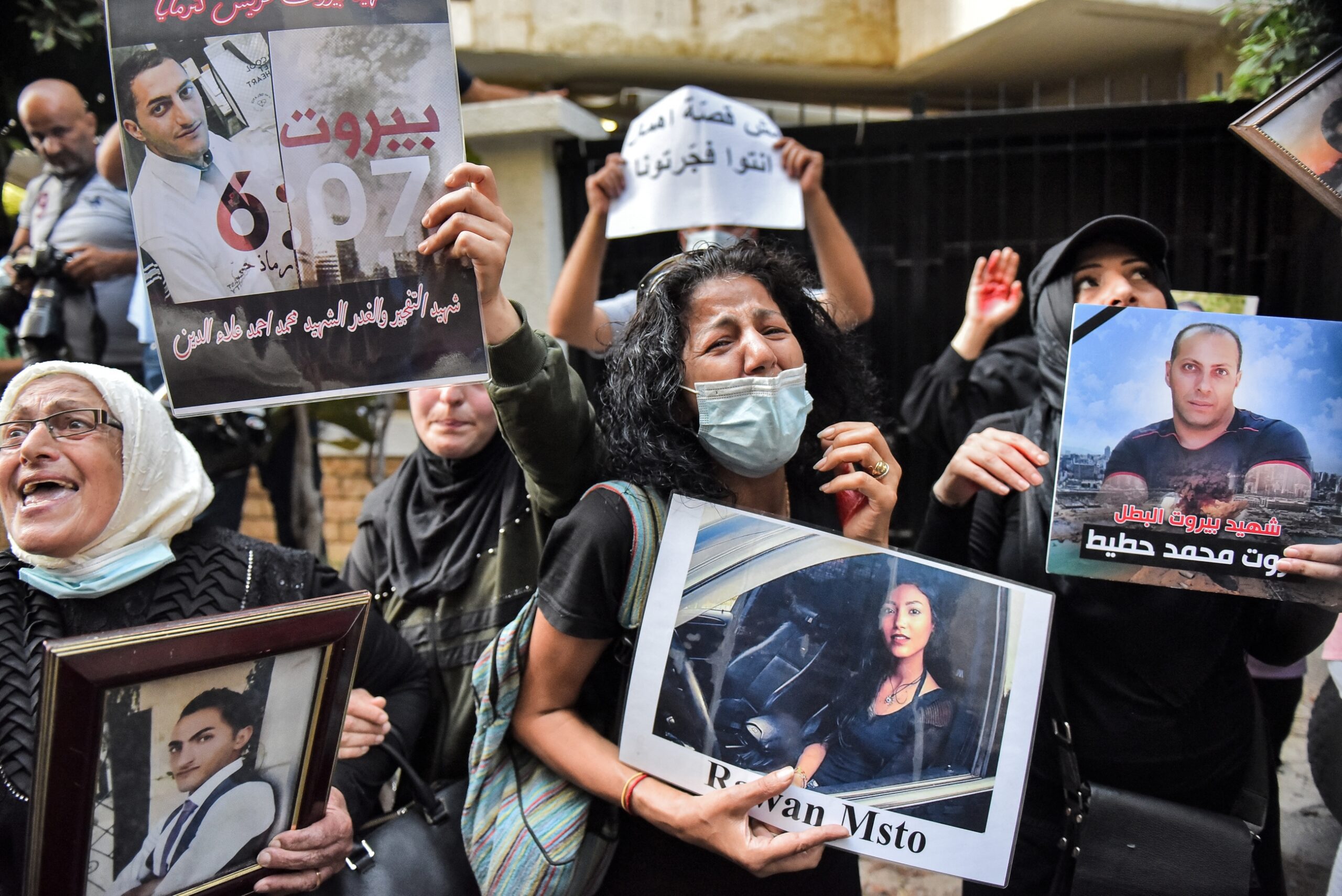Cassation Public Prosecutor Judge Sabbouh Suleiman decided to “stop” the execution of the arrest warrant in absentia against former minister and member of the Marada party Youssef Fenianos.
The decision came as the Public Prosecution deemed the arrest warrant issued by the judicial investigator in the case of the port explosion illegal, Tarek Bitar, on September 16, 2021. The warrant was issued after Fenianos failed to show up to his interrogation session and refused to appear before Bitar.
Judge Imad Qabalan, on his part, also revoked the arrest warrant against Member of Parliament and Amal Movement senior Ali Hassan Khalil, which was issued in December 2021 after Khalil was absent from his interrogation session.
Nearly three and a half years after the blast took place and the investigation has yet to move out of its preliminary stages. On the three-year mark of the blast last August, families of the victims had gathered and sent an appeal to the U.N. Rights Council after they and various citizens in Lebanon have grown frustrated and fatigued with the current state of the investigation.
A Judicial Debate
According to al-Modon sources, Judge Suleiman relied on a set of Articles for his decision, including Articles 363 and 73 of Criminal Procedures and Article 17 of the International Covenant on Civil and Political Rights.
Under these pretexts, the judicial investigator, Bitar, violated the law by not turning to the Public Prosecution before issuing the arrest warrant. The arrest warrant issued, accordingly, was deemed in violation of legal procedures.
However, other judicial sources indicate that the judicial investigator has the right to issue arrest warrants in absentia and only he can stop their execution. In that case, the Public Prosecution does not have the right to override the procedures of Bitar.
Recurrent Challenges
It’s important to note that the current challenges against Bitar’s investigation were not the first ones of their kind.
In addition to judicial challenges, the investigation instigated various security threats, such as when an armed demonstration by Hezbollah and Amal Movement turned into an open conflict, resulting in the death of seven people and the injury of thirty two others.
Hezbollah Secretary General Hassan Nasrallah, on his part, accused Bitar of conducting “politics”, as opposed to conducting a fair investigation.
As matters stand, many ruling class parties have opposed the investigation into the port explosion using several methods. No attempts to execute the arrest warrants against Khalil and Fenianos by security forces have been recorded thus far.
Such a state of affairs points to the absence of functional justice mechanisms in Lebanon, a widespread lack of accountability vis-à-vis ruling class individuals and groups, and a dismal state of law compliance.


